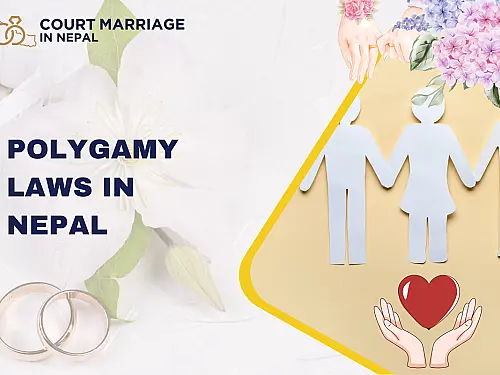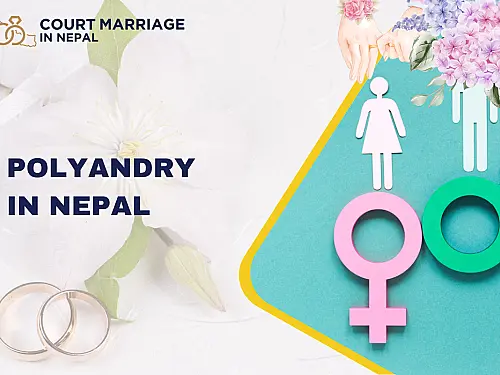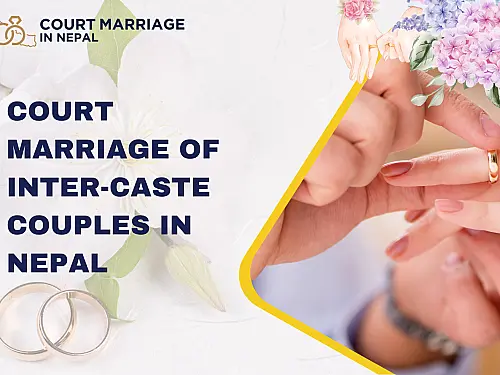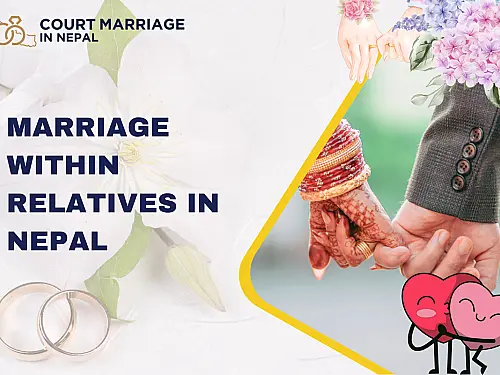If you are planning to get married in Nepal, you might be wondering whether a court marriage or a traditional marriage is the best option for you. Both types of marriage are legally recognized in Nepal, but they have some differences in terms of costs, convenience, legal protection and social acceptance. In this article, we will compare the pros and cons of court marriage and traditional marriage in Nepal.
What is court marriage?
Court marriage is a form of marriage that is based on mutual consent and recognized by the law. It does not require any religious or cultural ceremonies or rituals. It is also known as civil marriage or registered marriage.
Court marriage can be performed in a court of law by a judge or a registrar. The couple needs to submit an application form and some documents, such as their citizenship certificates, passport photos and witnesses' details. The court verifies the documents and registers the marriage if all the legal conditions are met. The couple receives a certificate of marriage registration as proof of their marriage.
What is traditional marriage?
Traditional marriage is a form of marriage that is based on religious or cultural ceremonies or rituals. It may also be recognized by the law if it meets certain legal requirements. It is also known as religious marriage or customary marriage.
Traditional marriage can be performed in a temple, a church, a mosque or any other place of worship by a priest, a pastor, an imam or any other religious authority. The couple needs to follow the rules and customs of their religion or culture, such as wearing certain clothes, exchanging vows, rings or garlands, performing rituals or offering prayers. The couple may also need to register their marriage with the local authorities if they want to obtain a legal certificate of their marriage.
Pros and cons of court marriage
Court marriage has some advantages and disadvantages compared to traditional marriage. Some of the pros and cons are:
Pros:
- Court marriage is simpler and less expensive than traditional marriage. It does not require hiring a venue, a wedding planner or paying for other expenses that are typically associated with traditional marriages.
- Court marriage is more convenient and flexible than traditional marriage. It can be performed at any time and any location that is convenient for the couple. It does not have any restrictions on the date, time or place of the marriage.
- Court marriage provides greater legal protection for both spouses. In a court marriage, the rights and responsibilities of both spouses are clearly outlined in a legal contract. This can provide greater security and peace of mind for both parties, as it ensures that each spouse's rights are clearly defined and protected.
- Court marriage can be more inclusive and accepting of diverse relationships. Court marriages do not require any religious or cultural ceremonies or rituals, which means that they can be performed for couples of any religion or cultural background. This can be particularly important for couples who may not have the support of their families or communities due to their relationship status or identity.
Cons:
- Court marriage may not be accepted or supported by some sections of society, especially those who follow traditional or religious norms. Some people may consider court marriages as invalid or immoral, and may not respect or recognize them as genuine marriages.
- Court marriage may not fulfill the emotional or spiritual needs of some couples who value their religion or culture. Some couples may feel that court marriages lack the meaning or significance that traditional marriages provide, and may not feel satisfied or happy with them.
- Court marriage may not be compatible with some legal systems or countries that do not recognize them as valid marriages. Some countries may require additional documents or procedures to validate a court marriage certificate, or may not accept it at all. This can create difficulties for couples who want to travel, work or live in those countries.
Pros and cons of traditional marriage
Traditional marriage has some advantages and disadvantages compared to court marriage. Some of the pros and cons are:
Pros:
- Traditional marriage can fulfill the emotional or spiritual needs of some couples who value their religion or culture. Some couples may feel that traditional marriages provide more meaning or significance to their relationship, and may feel more satisfied or happy with them.
- Traditional marriage can be accepted or supported by some sections of society, especially those who follow traditional or religious norms. Some people may consider traditional marriages as valid or moral, and may respect or recognize them as genuine marriages.
- Traditional marriage can be compatible with some legal systems or countries that recognize them as valid marriages. Some countries may accept a traditional
Cons:
- Traditional marriage can be more complicated and expensive than court marriage. It may require hiring a venue, a wedding planner and paying for other expenses that are typically associated with traditional marriages.
- Traditional marriage can be less convenient and flexible than court marriage. It may be governed by certain cultural or religious customs that dictate when and where the marriage can take place. For example, traditional Hindu marriages in Nepal are often performed at a specific time of year and may require the presence of certain family members or community members.
- Traditional marriage may provide less legal protection for both spouses. In a traditional marriage, the rights and responsibilities of both spouses may not be as clearly defined or protected as in a court marriage. This can create problems or conflicts in the future, especially in cases of divorce or remarriage.
Conclusion
Court marriage and traditional marriage are both valid options for getting married in Nepal. However, they have some pros and cons that you should consider before making your decision. Court marriage can be simpler, cheaper, more convenient, more legal and more inclusive than traditional marriage. Traditional marriage can be more meaningful, more accepted, more compatible, more complicated, more expensive and less legal than court marriage. Ultimately, the choice depends on your personal preferences and circumstances.
At Court Marriage In Nepal, a registered law firm operating as Court Marriage In Nepal Pvt. Ltd., we specialize exclusively in Court Marriage Nepal. As the first law firm in Nepal dedicated to court marriage services, we assist both Nepali citizens and foreign nationals with the court marriage registration process in Nepal, including complete legal support for court marriage registration for foreign citizens in Nepal. As a trusted marriage firm in Nepal and a licensed law firm in Nepal, we ensure a smooth, lawful, and stress-free experience. Contact us today for confidential assistance with court marriage registration in Nepal.

-medium.webp)




